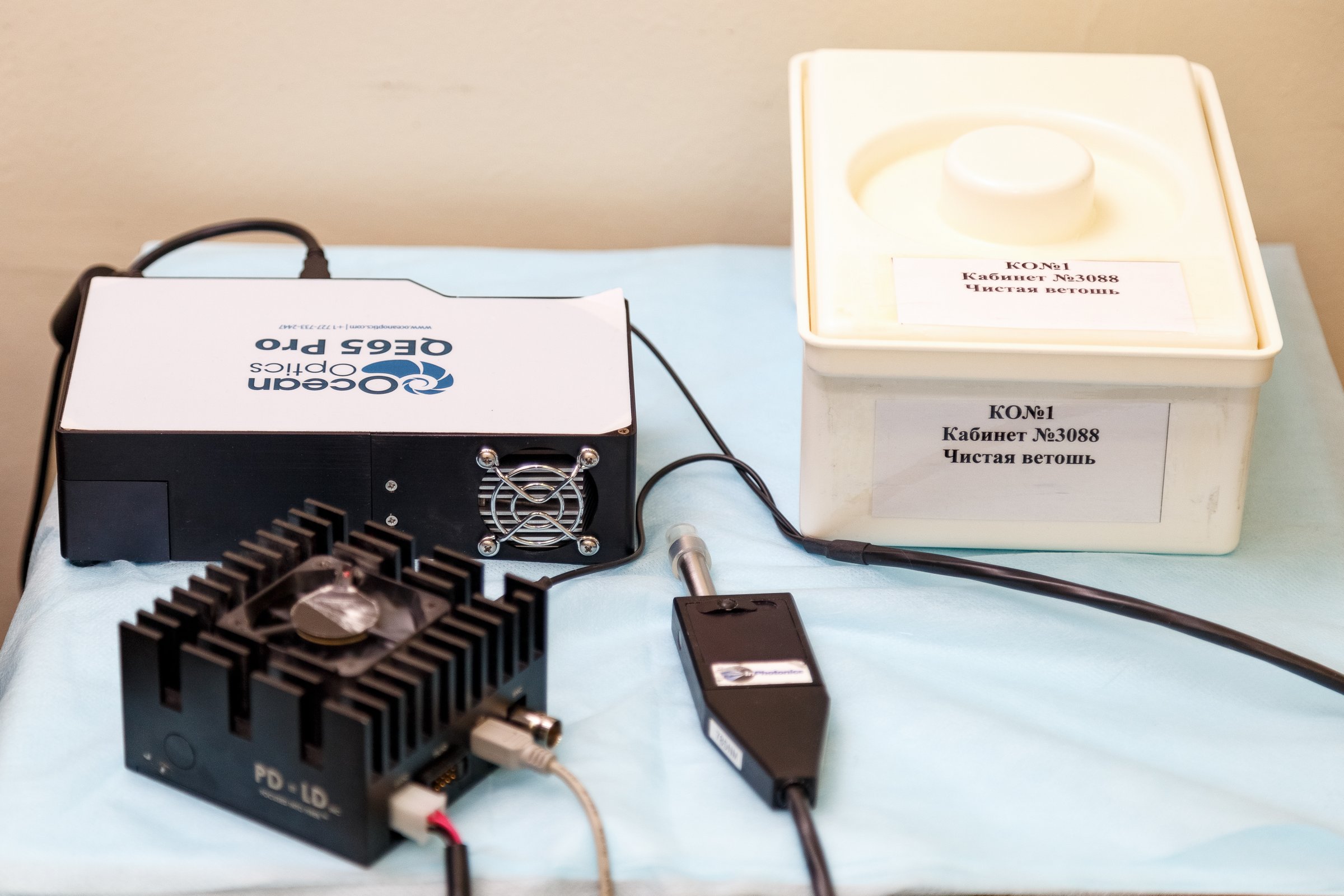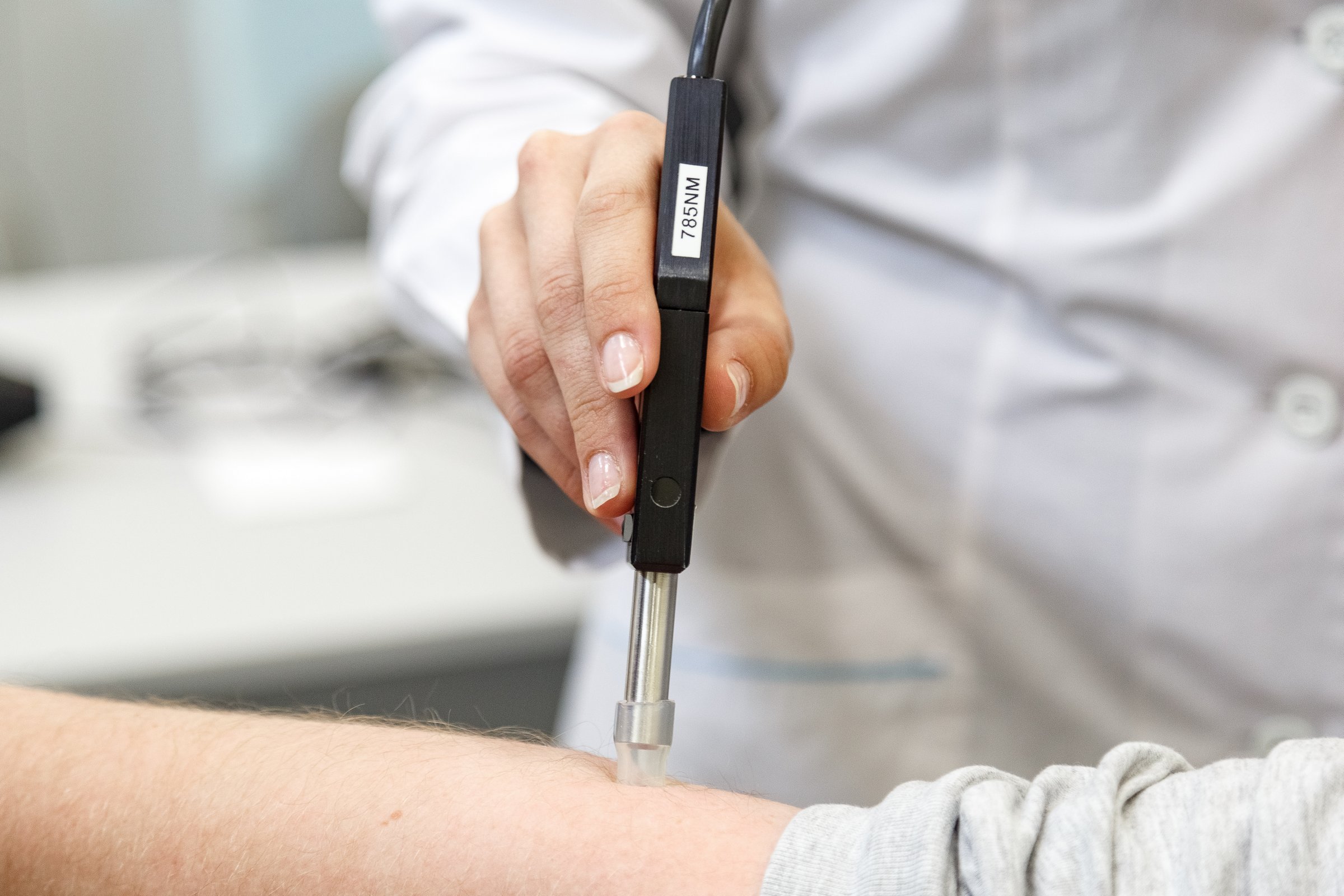According to WHO statistics, about 20 million people die from cardiovascular diseases every year; it is the most common cause of death in the world. Among these diseases is chronic heart failure, in which the body’s blood and tissues are not fully oxygenated.
The initial stage of chronic heart failure occurs without pronounced symptoms. The disease is often diagnosed only in severe forms, when it is already difficult to provide the necessary medical care to the patient. Therefore, the development of systems for early diagnosis of this disease is one of the priority areas of scientific medical research today.
Scientists of Samara University together with colleagues from State Budgetary Healthcare Institution Samara City Clinical Hospital No. 1 named after N. I. Pirogov and SamSMU have developed a sensor that allows to confirm the presence of chronic heart failure using an optical method.
“By registering unique spectral profiles of patients’ skin using Raman spectroscopy, we were able to measure the relative changes in functional groups of nucleic acids, proteins, lipids and carbohydrates in the skin between patients with confirmed chronic heart failure and those with unconfirmed disease,” says Yulia Khristoforova, a junior researcher at the Photonics R&D Laboratory of the Department of Laser and Biotechnological Systems at Samara University.
According to the scientist, the researchers have developed the world’s first method of diagnosing chronic heart failure without interfering with the human body or using additional reagents. In clinical studies, scientists have found that chronic heart failure can be reliably detected by changes in the unique spectrum obtained from human skin.
“We spot-lasered the inside of the patient’s forearm. Penetrating the skin, the radiation interacted with its tissues and changed its energy depending on their composition. We recorded these changes with a special probe and determined the spectral profile of skin, which is as unique as a fingerprint, for each patient. Then all spectral profiles of the skin of patients with and without chronic heart failure were compared and analyzed using machine learning methods,” Khristoforova explained.
She noted that optical diagnostic methods are now being developed in a wide range of scientific fields, from geology to the aviation industry. They have gained special significance in medicine, as they substantially expand the range of diagnosable diseases, reduce the diagnostic costs and provide an opportunity for field-based rather than laboratory diagnostics.
The diagnostic method proposed by the scientists of Samara University and their colleagues, in their opinion, does not exclude the use of existing methods, but with further improvement will be able to increase the accuracy of analysis, help specialists in various fields of medicine in diagnosing diseases, assessing their course and determining the optimal methods of treatment.
In the future, the team plans to expand the study to enroll more patients in clinical trials and improve the accuracy of the assay using the developed method.
This work was supported by RSF grant No. 21-75-10097. Samara University is a participant of the Priority-2030 program of state support for universities of the Russian Federation.
Source: ria.ru
 RU
RU  EN
EN  CN
CN  ES
ES 

